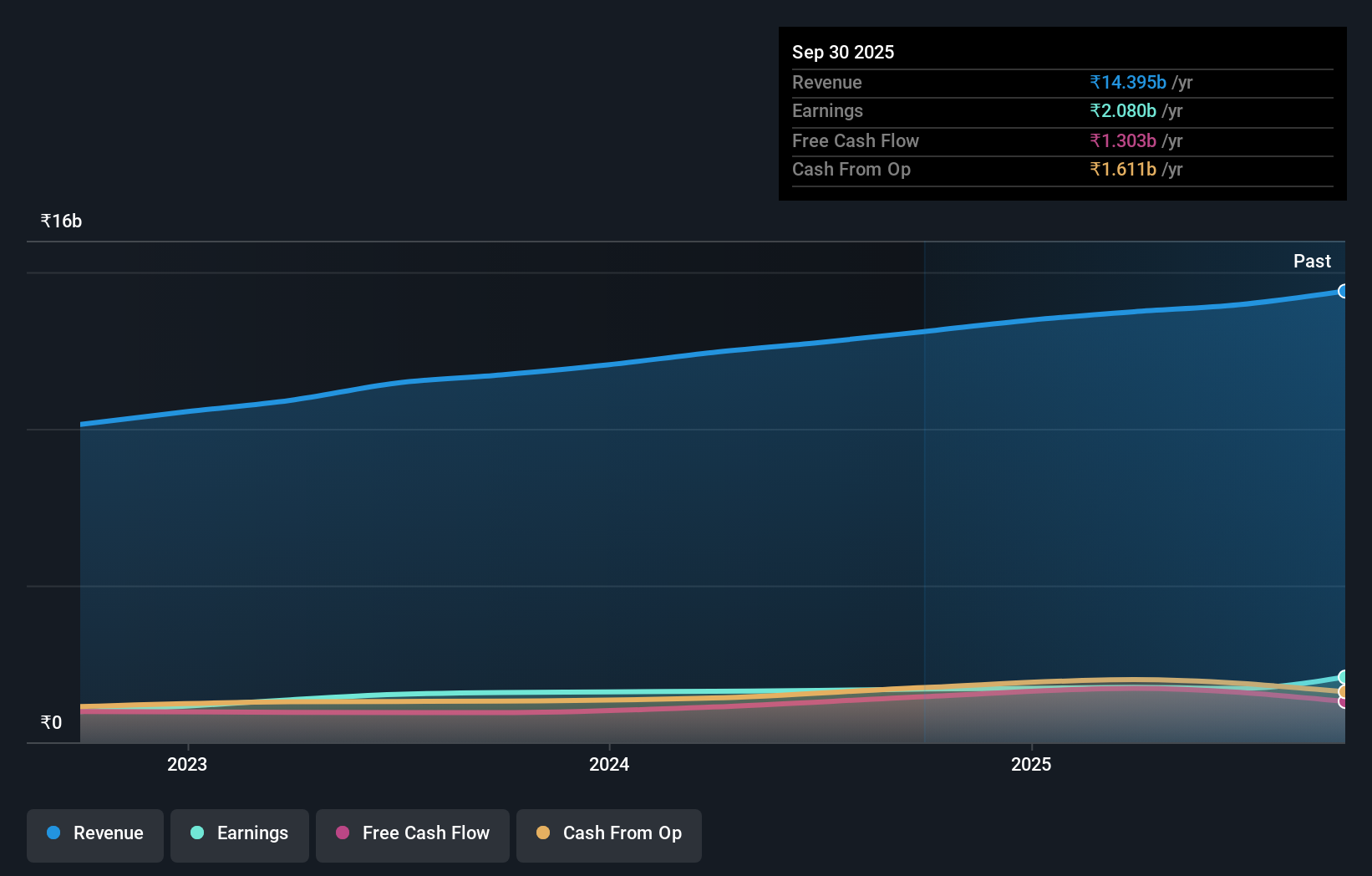ESAB India Limited's (NSE:ESABINDIA) market cap touched ₹81b last week, benefiting both public companies who own 74% as well as institutions
Key Insights
- The considerable ownership by public companies in ESAB India indicates that they collectively have a greater say in management and business strategy
- The largest shareholder of the company is ESAB Corporation with a 74% stake
- Institutions own 14% of ESAB India
To get a sense of who is truly in control of ESAB India Limited (NSE:ESABINDIA), it is important to understand the ownership structure of the business. With 74% stake, public companies possess the maximum shares in the company. In other words, the group stands to gain the most (or lose the most) from their investment into the company.
Following a 7.7% increase in the stock price last week, public companies profited the most, but institutions who own 14% stock also stood to gain from the increase.
Let's take a closer look to see what the different types of shareholders can tell us about ESAB India.
See our latest analysis for ESAB India

What Does The Institutional Ownership Tell Us About ESAB India?
Institutional investors commonly compare their own returns to the returns of a commonly followed index. So they generally do consider buying larger companies that are included in the relevant benchmark index.
As you can see, institutional investors have a fair amount of stake in ESAB India. This suggests some credibility amongst professional investors. But we can't rely on that fact alone since institutions make bad investments sometimes, just like everyone does. It is not uncommon to see a big share price drop if two large institutional investors try to sell out of a stock at the same time. So it is worth checking the past earnings trajectory of ESAB India, (below). Of course, keep in mind that there are other factors to consider, too.

ESAB India is not owned by hedge funds. Looking at our data, we can see that the largest shareholder is ESAB Corporation with 74% of shares outstanding. With such a huge stake in the ownership, we infer that they have significant control of the future of the company. SBI Funds Management Limited is the second largest shareholder owning 9.6% of common stock, and Nippon Life India Asset Management Limited holds about 2.1% of the company stock.
While studying institutional ownership for a company can add value to your research, it is also a good practice to research analyst recommendations to get a deeper understand of a stock's expected performance. As far as we can tell there isn't analyst coverage of the company, so it is probably flying under the radar.
Insider Ownership Of ESAB India
The definition of company insiders can be subjective and does vary between jurisdictions. Our data reflects individual insiders, capturing board members at the very least. Company management run the business, but the CEO will answer to the board, even if he or she is a member of it.
Insider ownership is positive when it signals leadership are thinking like the true owners of the company. However, high insider ownership can also give immense power to a small group within the company. This can be negative in some circumstances.
Our data cannot confirm that board members are holding shares personally. Not all jurisdictions have the same rules around disclosing insider ownership, and it is possible we have missed something, here. So you can click here learn more about the CEO.
General Public Ownership
The general public-- including retail investors -- own 12% stake in the company, and hence can't easily be ignored. This size of ownership, while considerable, may not be enough to change company policy if the decision is not in sync with other large shareholders.
Public Company Ownership
Public companies currently own 74% of ESAB India stock. This may be a strategic interest and the two companies may have related business interests. It could be that they have de-merged. This holding is probably worth investigating further.
Next Steps:
It's always worth thinking about the different groups who own shares in a company. But to understand ESAB India better, we need to consider many other factors. For example, we've discovered 2 warning signs for ESAB India (1 is concerning!) that you should be aware of before investing here.
Of course, you might find a fantastic investment by looking elsewhere. So take a peek at this free list of interesting companies.
NB: Figures in this article are calculated using data from the last twelve months, which refer to the 12-month period ending on the last date of the month the financial statement is dated. This may not be consistent with full year annual report figures.
Valuation is complex, but we're here to simplify it.
Discover if ESAB India might be undervalued or overvalued with our detailed analysis, featuring fair value estimates, potential risks, dividends, insider trades, and its financial condition.
Access Free AnalysisHave feedback on this article? Concerned about the content? Get in touch with us directly. Alternatively, email editorial-team (at) simplywallst.com.
This article by Simply Wall St is general in nature. We provide commentary based on historical data and analyst forecasts only using an unbiased methodology and our articles are not intended to be financial advice. It does not constitute a recommendation to buy or sell any stock, and does not take account of your objectives, or your financial situation. We aim to bring you long-term focused analysis driven by fundamental data. Note that our analysis may not factor in the latest price-sensitive company announcements or qualitative material. Simply Wall St has no position in any stocks mentioned.
About NSEI:ESABINDIA
ESAB India
Manufactures and sells welding and cutting equipment and consumables in India and internationally.
Flawless balance sheet with proven track record and pays a dividend.
Similar Companies
Market Insights
Community Narratives



